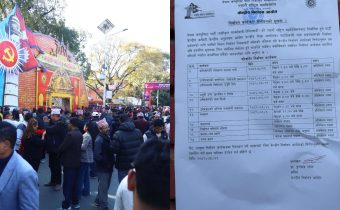KATHMANDU- Following the Nepalese government’s ban on 26 social media platforms, including Facebook, Instagram, and X, users are turning to Virtual Private Networks (VPNs) in a widespread effort to bypass the restrictions. While this is a familiar pattern in response to internet censorship, it comes with significant security risks, infrastructure challenges, and warnings from authorities.
The surge in VPN usage
Just as observed during the temporary ban on TikTok in 2023, the blocking of major social media apps has prompted a spike in the use of VPNs and DNS workarounds. A VPN allows users to hide their real IP address and appear as if they are browsing from a different country, thus sidestepping national-level blocks.
This immediate user response shows the deep integration of these apps into daily life for many Nepalis, who rely on them for communication, information, entertainment, and business. For businesses, in particular, the ban was a sudden shock, leading many to seek alternative ways to reach their customers.
The double-edged sword of free VPNs
Most Nepali internet users accessing restricted content use freely available VPN and DNS apps, which is where the primary dangers lie. The Nepal Police Cyber Bureau has issued a strong warning against the indiscriminate use of unauthorized or unreliable VPNs, highlighting the severe risks involved.
Key risks associated with free VPN services include:
- Data leaks: Many free VPNs log user data and sell it to third parties for profit, compromising personal privacy.
- Malware and viruses: Users are at a higher risk of encountering malware and viruses when using untrustworthy VPN apps.
- Financial loss: The Cyber Bureau specifically warned that hacks targeting banking apps and other sensitive financial information could result from using insecure VPNs.
- Lack of encryption: Free services often lack the robust security features and adequate encryption that paid alternatives provide, leaving user data exposed.
Internet infrastructure under strain
The surge in VPN use is also putting a strain on Nepal’s internet infrastructure. When traffic is routed through servers outside Nepal via VPNs, it increases the demand for international bandwidth.
- This can lead to network congestion, resulting in slower internet speeds and increased latency for all users.
- According to analysts, if the ban continues, the increased international bandwidth demand could also lead to higher internet costs for consumers in the long run.
A repeat of past patterns
This isn’t the first time Nepal has faced this situation. When TikTok was banned, a similar pattern of VPN adoption, bandwidth strain, and official warnings occurred. The lifting of the TikTok ban came only after its parent company, ByteDance, registered in Nepal. Observers suggest that the current government strategy follows a similar playbook.
For now, users in Nepal are navigating a complex digital landscape, balancing their desire for open communication with the significant security risks that come with bypassing government restrictions. The outcome remains uncertain as the government awaits compliance from the tech giants.








![Actress Keki Adhikari flaunts hotness in the winter sun [9 Photos] 5 Keki Adhikari Cover](https://www.pressadda.com/wp-content/uploads/2025/12/Keki-Adhikari-Cover-340x210.jpg)







